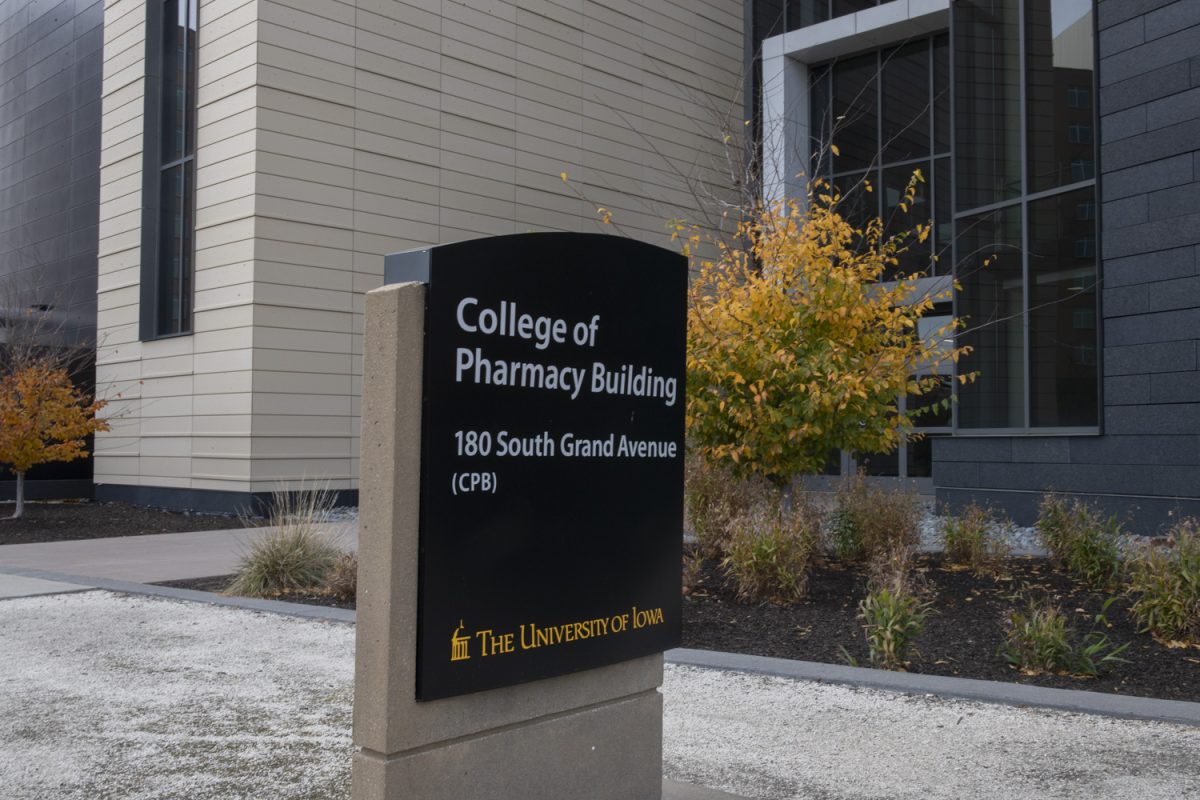The University of Iowa has been selected among 22 other research teams to participate in the Advanced Research Projects Agency for Health’s Sprint for Women’s Health, a program headed by President Joe Biden’s White House Initiative on Women’s Health Research. They will receive $8.8 million in funding.
The leader of the UI’s research team is College of Pharmacy Dean and Professor Jill Kolesar. She will work to develop a new type of treatment for ovarian cancer through small, fluid-filled sacs called MEVs to target and eliminate ovarian cancer cells. The approach, if successful, would be a significant advancement to current treatment processes.
“I think they had 1,900 applications, and only 23 got funded,” Kolesar said. “And if you can be in this program, they provide a lot of resources and expertise to really help your project to get from where you are now into the commercial zone. So, we thought that particular funding mechanism was perfect for what we were trying to accomplish.”
Kolesar, a translational researcher, works to move a new treatment from the laboratory into the clinic quickly, safely, and efficiently. Her area of expertise in precision medicine and oncology drug development will support the development of this new ovarian cancer treatment.
“It’s every scientist’s dream to help people,” Kolesar said. “Ovarian cancer is a very serious disease that there’s no effective treatment for. And if this drug is effective, we can reduce the deaths due to ovarian cancer in the United States and maybe the world.”
Kolesar’s research is being supported by the College of Pharmacy at the UI as well as the Holden Cancer Center. The resources provided by the federal grant will help improve prevention, diagnosis, and treatment of ovarian cancer.
“It’s an entirely new strategy,” Kolesar said. “What we’re trying to do is turn the immune system on so that it can wipe out the cancer. And the advantage is that it works really well, and it’s selective against cancer, so it doesn’t have the off-target effects we’re so used to seeing with chemotherapy.”
George Weiner, a member of Kolesar’s team and a professor of internal medicine-hematology, oncology, and blood and marrow transplantation, has had a longstanding interest in cancer immunotherapy research and understanding how we can use the immune system to treat cancer.
“There are cells in the immune system that communicate with each other,” Weiner said. “Some are designed to activate and fight an invader, like an infection. Others are designed to tone down autoimmune problems. And this will help turn on the immune system so it can fight ovarian cancer more effectively.”
Weiner has dedicated his career to trying to develop new ways to use the immune system to fight cancer, and this is an exciting new opportunity to do that with a group of talented scientists, he said.
“What’s exciting is that we’re taking that knowledge we built from research over many years and increasingly being able to use it to develop new treatments that will help patients,” Weiner said. “That’s the whole goal. And it’s taken a long time to build towards that, but it’s a very exciting time in the field right now.”
RELATED: College of Pharmacy announces new certificate
Depending on how the research process goes, the research may continue for many years as they work to develop the new drug, called MEV-1. The resources available through the Advanced Research Projects Agency for Health are very beneficial to the process, Weiner said, allowing them to hire additional people and assess the immune response to the treatment.
“The overall goal is to show whether this new approach to immunotherapy works for patients, and if it does, we’d love to see it be available more widely,” Weiner said. “We don’t know if it will work yet, so that’s why we do the research — to figure out if this idea is actually going to turn into something that will help people.”
The Advanced Research Projects Agency for Health’s funding received unprecedented attention, with more than 1,700 submissions from 45 states, the District of Columbia, and 34 countries.
Since its launch in November 2023, the initiative has made significant investments to close gaps in research on women’s health. Proposals presented innovative ideas ranging from novel, groundbreaking research to opportunities to accelerate tools with potential for commercialization.
Portfolio Lead Jenica Patterson is part of the team at the Sprint for Women’s Health, which was announced in February 2024 by the First Lady Jill Biden. She is helping to lead the funding that the UI and other organizations worldwide received.
“The Sprint for Women’s Health represents a significant step forward in addressing the historical underrepresentation of women in health research,” Patterson said. “With these projects, we hope to fill gaps in our medical understanding and quality of health care and also show the business potential behind investments in women’s health research.”



